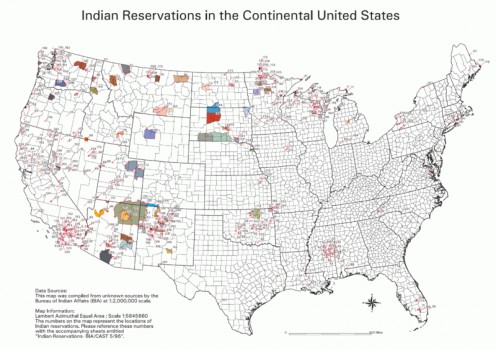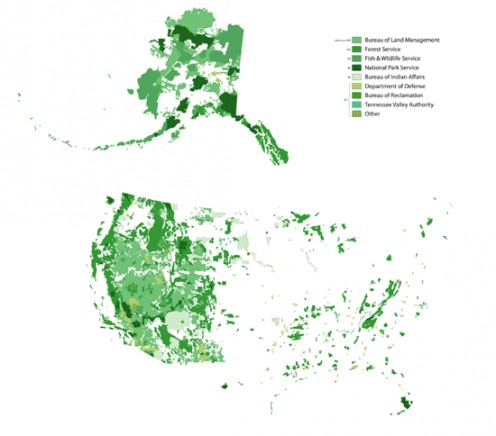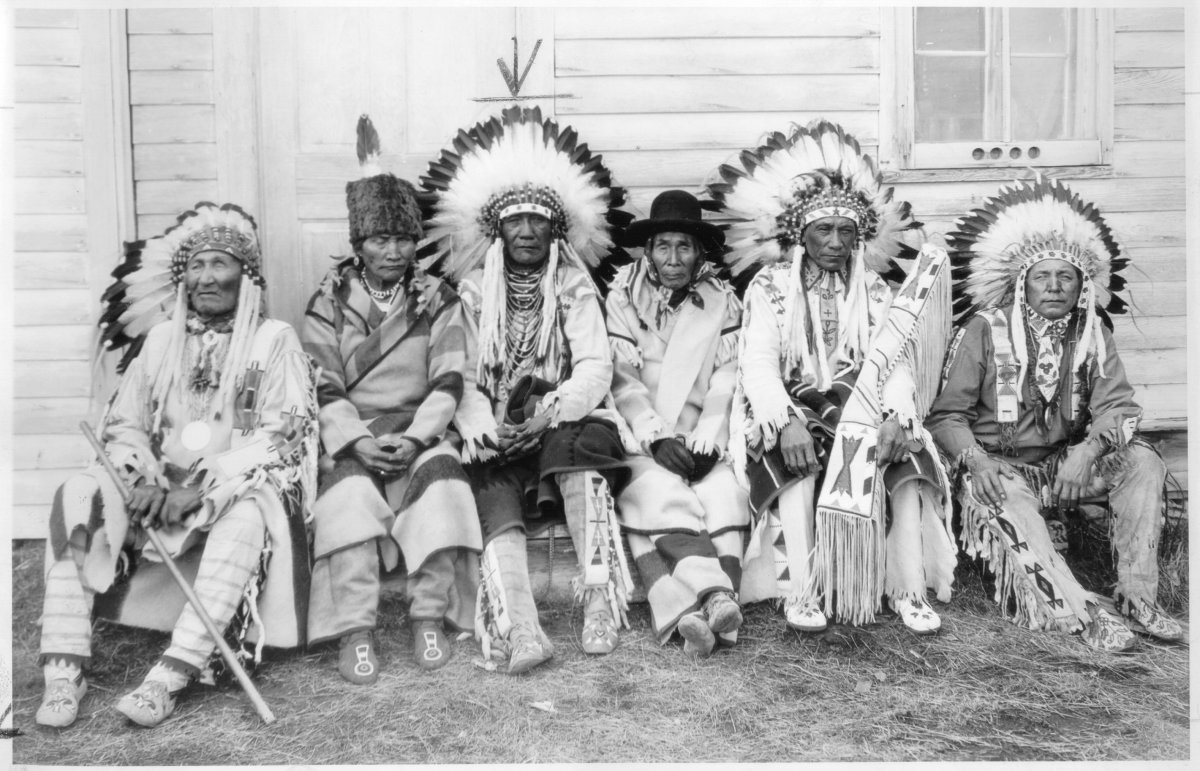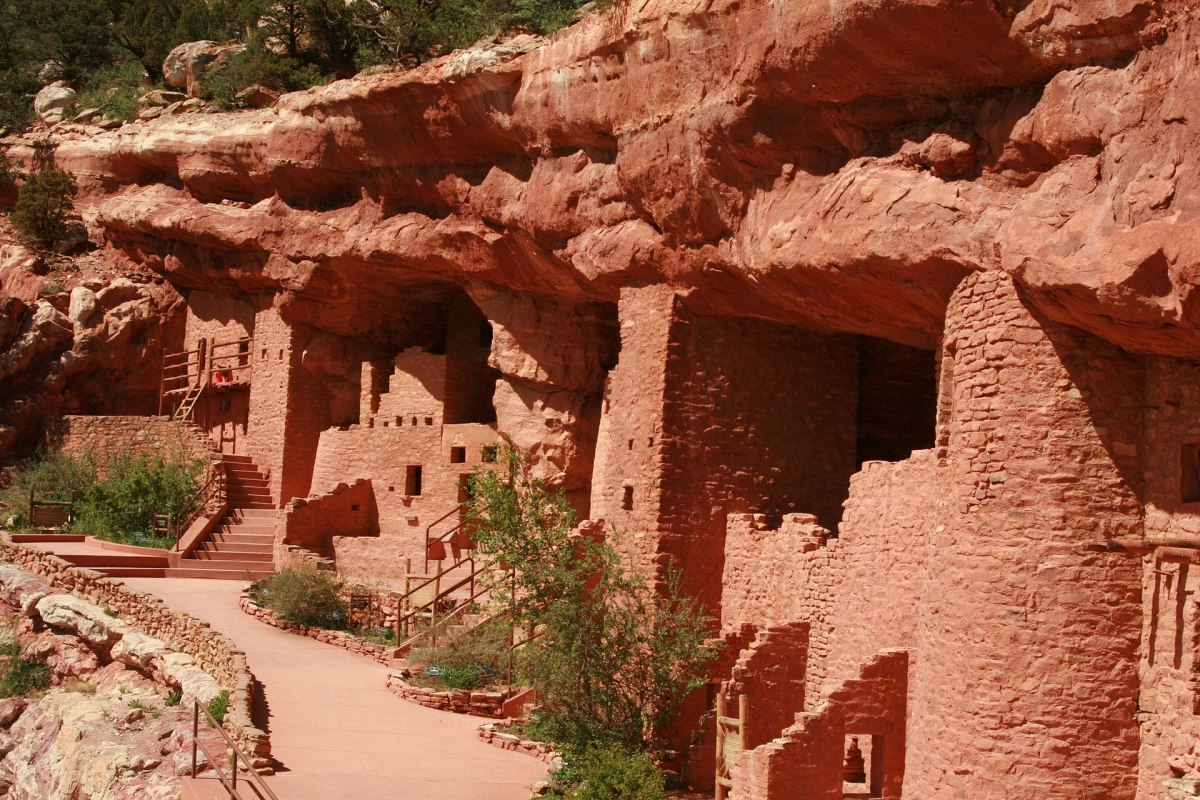How Much US Land Is In Indian Reservations? How Much Land Is Owned By The US Government?
Land For The American Indian
When Europeans first appeared on the eastern coast of North America, the entire continent was filled, from shore to shore, with large populations of native peoples. All the land was owned by the tribes. Huge numbers of these peoples promptly died from plagues brought over by the new visitors, opening the way for easy conquest by later settlers from Spain, France, Holland, Sweden and Britain.
But many Native Americans still remained in possession of their ancestral lands, and they fiercely resisted the alien invaders. After repeated wars, the survivors were pushed onto tiny reservations. Many of the Indians eventually blended into the invading population, and many modern White Americans claim some descent from the 'Indians'. (There is apparently some benefit in having a claim to being 'Indian' when you apply for a job in a university, even without any evidence.)
Pitiful Plots Of Poor land
Looking at this map, you can see how much land the Indians once had, all of it, and the tiny parcels of mostly inferior land left to them now for reservations.

A Way Out
The United States is a large, very rich country. Isn't it time we started thinking about giving the survivors justice for the wrongs done to them? We can't do anything for the original Americans, but we can for their five million descendants.
The US isn't in a great financial position right now, in spite of our wealth as a society. Our government and private debt is huge, $50,000 per person, more or less.
We can't afford to pay each of those five million American Indians enough to recompense them for generations of theft, death and poverty. So, what can we do? I promise you, a way exists that would both reduce our national debt and give the Indians some measure of justice. Look at the map below:
Lands Owned By The US Federal Government

A Plan For Justice And Prosperity
All those green splotches represent land owned by the US government. The Federal Government owns about 30% of the total land area of the United States. How did they get this land? Several ways. Some of it was bought from other countries, from France or Mexico. Some of it was won in wars, with Britain, Mexico and Spain. None of these countries had any aboriginal claim to the land. They were all invaders, even the Mexicans. It is difficult to see how any of these countries had a just claim to the land, or a right to invade it, or later to sell it.
Much of the undeveloped land is managed by the BLM, or, Bureau of Land Management, a single government agency that manages 253,000,000 acres of public land. This one agency has a budget of $960,000,000 per year. Much of this land is managed as grazing land for use by farmers and ranchers, and some is also leased to mining and oil exploration companies. Unfortunately, the BLM has a very poor record of land stewardship, and has drawn fire from both right and left wing critics.
Regardless of whether we fall on the left or right, we can all agree that the BLM has been a disaster for the USA. Keeping back only those lands for legitimate government uses, military bases, and the like, there are still many millions of acres of land that could be given over to private use by American Indians.
How could this work? The method I favor is to first subtract the BLM lands that the government should keep. The amount should be strictly limited by statue, so that public employees don't get greedy and try to keep ahold of everything good. A nice round number would be 200,000,000 acres. That leaves the government with 53,000,000 acres to play with. Should be enough for anyone, you'd think.
Then, a lottery. No other way would be really fair. The places Indians are forced to live in now are more often than not far from their ancestral homelands. Besides, the Indians themselves were constantly at war with each other, and there is no way to establish clearly which tribes should get which lands.
Some lands being better than others, who would decide which Indian got which parcel? A lottery would at least start out more or less fair, and less valuable lands could be given out in larger blocks. If an Indian won land far from where he wanted to be, he could then swap it on a private market with another Indian who lived closer, or who had a particular reason to want that land.
The lottery should be limited to Indians with a clear relationship to current tribes, or who have documentation of their ancestry. In cases where ancestry was in dispute, we could even allow genetic testing to verify a person is an Indian. The tests are not that expensive these days, and Indians are genetically distinct enough that testing would weed out most of the fakes. I have no interest in rewarding posers who profit off of fictitious Indian great-grandmothers.
In order for the benefits of this plan to flow initially to Indians, and not to corporations and their lawyers, the law managing this transfer should specify a time period of a few years in which the land could be traded or sold only to other Indians. Three to five years would be sufficient for the new owners to investigate the fair value of their new lands, and to hire lawyers and agents of their own to defend their rights. After that period, they could manage the lands as they pleased, including selling them to other Americans.
This movement of resources from destructive, wasteful government hands to private would unleash an economic boom of proportions not seen since the land rushes in the 1800s. Would there be problems, poor management, ecological destruction on some of the newly private lands? Of course. Don't be stupid. The question is not would there be negatives, but rather, would the situation be worse than what we have now.
The answer is clearly no. Poverty among one of our poorest and most mistreated minorities would be eliminated, almost at a stroke. Slipshod government management of public lands would end and healing of the lands could begin. Some land would be abused, but much land is being abused now.
Public land turned private would also mean a huge return for the government. The government gets its money mainly from taxes, not from leases of BLM land. Leases bring a return to the government of some six billion dollars each year. Sounds like a lot, but it is really just beans to an organization that spends trillions each year. Six billion is less that the government spends in just one day! Taxes paid to state, local and the federal government from newly private lands would soon dwarf this puny amount.
There are several obvious objections to this plan.
- Racism. Many people believe the Indians are too uneducated and backward to properly manage large enterprises. Somehow in recent years the Indians have learned how run circles around their detractors, and have created thriving businesses on the reservations, outwitting State legislators who fought to keep them down. There may be some dumb Indians out there, but there are plenty of smart ones. The people making this argument are like I said, racists, or just dumb themselves.
- Many on the Far Left will object for purely ideological reasons. They refuse to accept that the government may not be the best organization to manage, well, everything. If the government owns something now, they want it to own that thing forever. But if the government is so great at managing land, why isn't the East, where most land is private, a wasteland, and the West, where the majority is public, wonderfully well managed? Government-managed lands are poorly managed. Compare public housing to private homes, if you need another example.
- Some on the Right will object because they will see that instead of companies getting sweetheart deals to make profits on mining, oil and timber, they will have to pay fair market rates to private owners. The less wealthy will get a cut of the action, and not just the politically connected.
- The government will object, because they can't stand to see power slip away from them. Public employees may lose safe jobs with good benefits. Horrors! They might have to go to work for an INDIAN!
- Greens would object, because most of them are knee-jerk socialists first, and greens second. See point number two above. They would rather see Indian babies live in huts than give up any government power.
- That is not to say there are not some legitimate objections too. A lot of BLM land has been leased to the same families for generations, and they have developed it based on traditional and legal claims. They should not lose their life's work. Existing oil and mineral leases should also be maintained, but with the leasing fees paid to the new Indian owners. Eventually as the leases run out they can be renegotiated, at fair market rates.
- Smart people who can do simple math might also object. If there are 5,000,000 Indians, and say, 200,000,000 million acres of BLM land available to pass out, that comes out to only 40 acres per Indian. That sucks. Are we going to throw in a mule, too? So why stop with BLM land? No reason. Add in Forest Service land, and straight off that gives you another 200,000,000 acres. Keep going, the US government has LOTS more land! Scroll back up and look at that map.
So, the people objecting to this plan would be mainly racist ideologues defending the status-quo. Supporters would be honest liberals who care about justice for an oppressed minority. And honest conservatives who want an economic boom for everyone, not just a few corporations.








